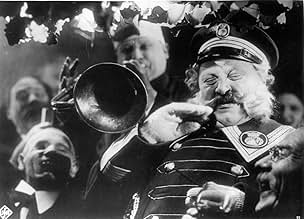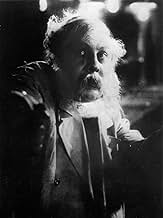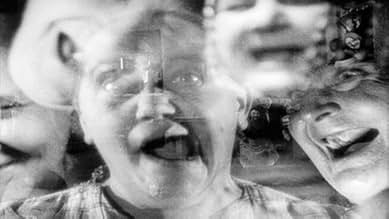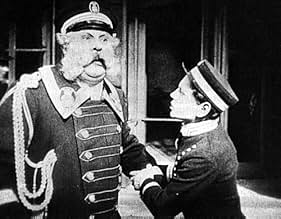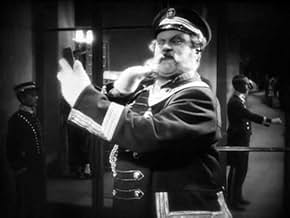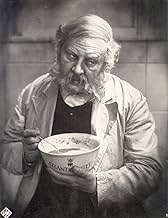CALIFICACIÓN DE IMDb
8.0/10
16 k
TU CALIFICACIÓN
El portero de un edificio se encuentra ante la burla de sus amigos tras ser despedido de su trabajo en un hotel de alto lujo.El portero de un edificio se encuentra ante la burla de sus amigos tras ser despedido de su trabajo en un hotel de alto lujo.El portero de un edificio se encuentra ante la burla de sus amigos tras ser despedido de su trabajo en un hotel de alto lujo.
- Dirección
- Guionista
- Elenco
- Premios
- 2 premios ganados en total
O.E. Hasse
- Small Role
- (sin créditos)
Harald Madsen
- Wedding Musician
- (sin créditos)
Neumann-Schüler
- Small Role
- (sin créditos)
Carl Schenstrøm
- Wedding Musician
- (sin créditos)
Erich Schönfelder
- Small role
- (sin créditos)
- Dirección
- Guionista
- Todo el elenco y el equipo
- Producción, taquilla y más en IMDbPro
Argumento
¿Sabías que…?
- TriviaThe first "dolly" (a device that allows a camera to move during a shot) was created for this film. According to Edgar G. Ulmer, who worked on the film, the idea to make the first dolly came from the desire to focus on Emil Jannings' face during the first shot of the movie, as he moved through the hotel. They obviously didn't know how to make a dolly technically, so they created the first one out of a baby's carriage. They then pulled the carriage on a sort of railway that was built in the studio.
- ErroresWhen the porter comes home with the stolen coat, the third button down (which fell off earlier) is still there until a close-up of him at the door.
- Versiones alternativasThere is an Italian edition of this film on DVD, re-edited in double version (1.33:1 and 1.78:1) with the contribution of film historian Riccardo Cusin. This version is also available for streaming on some platforms.
- ConexionesFeatured in Mortelle randonnée (1983)
Opinión destacada
F.W Murnau is best known for his expressionistic horror movies, such as 'Nosferatu' and the excellent 'Faust'. This movie is somewhat different from those, as it's a more personal and down to earth sort of tale. Still, despite this not being a member of the horror genre; Murnau's style still allows for much of the great visuals that made his horror movies great. The story itself has definite horror elements, which although they don't involve vampires or the devil; are arguably more frightening, as it dictates and event that could well happen to anyone. The film tackles the idea of 'downfall', and as the prologue states; one can be a prince one day, but what is he tomorrow? This tale is told through the story of a hotel porter that has worked hard all his life but loses his job through incredible bad luck when the manager catches him taking a break. Heartbroken and humiliated, our hero is offered another job; but it only allows for his humiliation to continue, as the job is that of a lowly bathroom attendant. We then follow his struggle as he comes to terms with his loss and the reaction of his family and neighbours.
F.W. Murnau uses no story cards for this silent film, which shows his flair for storytelling. Imagining some of today's 'great' filmmakers telling a story without dialogue is preposterous, but Murnau shows his prowess by doing just that, and doing it down to a fine art. People often cite 'Citizen Kane' for being the film that took storytelling to the next level, and although it did do that; surely some of the credit has to go to F.W. Murnau. This film features what is perhaps the first ever fantasy sequence, a sequence that is, of course, a favourite of today's cinema. Murnau's technical mastery is also shown in many other sequences, including one in particular that sees a scene appear in the middle of a letter. It's quite unbelievable that this was made over eighty years ago, just due to the amazing work on show in the film.
The film falls down a bit towards the end, because of an ill-advised twist. This was put upon F.W. Murnau by the studio releasing the film, who wanted a happy ending. This is just another example of a studio spoiling a great movie, and even before I saw that piece of information in the trivia section for this movie; it was evident to me that it isn't the way that Murnau wanted to take the story from the way it almost appeared to be tacked on to the end of the film. Still, the hour and ten minutes running up the ending are almost as good as silent cinema gets, and in spite of the studio's best efforts to ruin it; The Last Laugh stands tall as on of Murnau's finest films.
F.W. Murnau uses no story cards for this silent film, which shows his flair for storytelling. Imagining some of today's 'great' filmmakers telling a story without dialogue is preposterous, but Murnau shows his prowess by doing just that, and doing it down to a fine art. People often cite 'Citizen Kane' for being the film that took storytelling to the next level, and although it did do that; surely some of the credit has to go to F.W. Murnau. This film features what is perhaps the first ever fantasy sequence, a sequence that is, of course, a favourite of today's cinema. Murnau's technical mastery is also shown in many other sequences, including one in particular that sees a scene appear in the middle of a letter. It's quite unbelievable that this was made over eighty years ago, just due to the amazing work on show in the film.
The film falls down a bit towards the end, because of an ill-advised twist. This was put upon F.W. Murnau by the studio releasing the film, who wanted a happy ending. This is just another example of a studio spoiling a great movie, and even before I saw that piece of information in the trivia section for this movie; it was evident to me that it isn't the way that Murnau wanted to take the story from the way it almost appeared to be tacked on to the end of the film. Still, the hour and ten minutes running up the ending are almost as good as silent cinema gets, and in spite of the studio's best efforts to ruin it; The Last Laugh stands tall as on of Murnau's finest films.
- The_Void
- 12 ene 2005
- Enlace permanente
Selecciones populares
Inicia sesión para calificar y agrega a la lista de videos para obtener recomendaciones personalizadas
- How long is The Last Laugh?Con tecnología de Alexa
Detalles
Taquilla
- Total en EE. UU. y Canadá
- USD 94,812
- Tiempo de ejecución1 hora 28 minutos
- Color
- Mezcla de sonido
- Relación de aspecto
- 1.33 : 1
Contribuir a esta página
Sugiere una edición o agrega el contenido que falta

Principales brechas de datos
What is the Italian language plot outline for Der letzte Mann (1924)?
Responda
